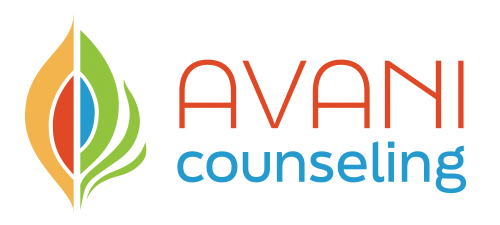Author: Jenn Hourani
When the United States shifted from a farming economy to an industrial powerhouse in the late 1800s, capitalist values like “productivity at all costs” and “profit over people” began to shape society as we now know it. “Work” became the new measure of personal worth; “output” became the new measure of regional success. Industrial hubs throughout the country were, and still are, considered more “cultured” and “powerful” than other areas. Over time, the capitalist value system became so deeply ingrained in American culture that it has shaped not only our economic policies and political dynamics, but our communities and identities. Many individuals link their self-worth to their compensation and professional achievements, often at the expense of their quality of life. “Work” is a powerful factor in how people experience and express gender, affection, and/or validation in their relationships. In social settings, people greet each other by discussing “work”. A person’s status is often dictated by their line of work, keeping us under the magnifying glass, by strangers and loved ones alike, on how we earn money.
We also see the effects of “work” through rising mental health diagnoses. The DSM (Diagnostic & Statistical Manual of Disorders) quantifies a disorder as being disruptive to “functioning”, which primarily focuses on the ability to be self-reliant, and/or be able to produce consistently in contexts like work and school. Given the uncertainty of today’s workplace, the rising cost of living, and the constant pressure to “produce”, even in our free time, it’s unsurprising that we’re seeing an increase in anxiety, depression, and other “dis-orders” of the human experience. This is reinforced in workplace statistics, where Human Resource think tanks and corporate leaders are reporting high employee stress and burnout. We have witnessed whole movements, like the recent phenomenon of “quiet quitting”, where many are mentally tuning out of work and doing the bare minimum to survive. All of this is unfolding as companies continue to lay people off in droves, since the pandemic, with no corporate or social accountability for their actions.
Throughout my time in the tech industry, I got to know the harmful impact of “work” and capitalism on mental health. In the tech industry, success is measured by peak performance, constant innovation, and rapid progress, which can also cause unrealistic deadlines, punitive expectations, and a constant feeling of “imposter syndrome”. I saw, firsthand, how this relentless drive for “output” slowly erodes all kinds of human health (mental, physical, relational, spiritual) when we’re not inviting balance into our lives. I saw how tech’s “hustle culture”, driven by investors and “progress-obsessed” leaders, quickly and subtly infiltrates our belief systems. It causes many of us to link our worth with our work; we joke about our fatigue and deteriorating personal lives, while chasing after titles, pay bumps, and public recognition. All of this is bolstered by managers who give constructive feedback in ways that can be harmful to, or even dismissive of, our humanity. In a one-on-one meeting many years ago, I vulnerably shared with my manager that I was feeling burned out from my heavy workload. The manager’s first response was, “Where are you falling short on time management?” Similarly, during the peak of the pandemic, I remember a friend of mine feeling unnerved when her manager pushed her to renew contracts with Covid-impacted customers. The leaders at those companies had explicitly stated, “We can renew our contract with you, or we can lay off two less employees.” My friend was told that these leaders were “playing games”, just to avoid a contract renewal.
It was only when I transitioned from software to mental health, that I could see beyond the bubble. I was fortunate to land at a training site, Narrative Initiatives San Diego, that was pure Narrative Therapy. Here, I was taught therapy through the narrative lens of questioning the status quo, examining societal influences, and helping people reclaim their power. In the corporate world, this didn’t feel possible. Not only was I caught in the machine, but I was actively benefiting from it. I even felt proud of myself, since for the first time in my life, I was making a 6-figure salary, which was extremely significant for me as a first-generation American.
Yet, as I began to put my corporate armor down, I noticed that many pieces of that machine were poisonous, and the poison takes time to dissolve. I had to let go of my need to control every professional situation, because that simply doesn’t work in a career like therapy. I had to accept that leaving my salary behind did not mean leaving my professional worth behind. I had to practice patience when tech friends said they “could never be therapists because they hate being poor”, choosing to operate from hope rather than fear.
For this reason and many others, I found a home in narrative therapy. Started by Michael White and David Epston in the 1980s, narrative therapy (to me at least), is a therapeutic community for outsiders, rebels, and independent thinkers. It insists on a view of humans as wondrous, wise, and inherently relational beings. It refuses societal discourses about who we’re “supposed” to be. And for me, a lifelong outsider in many ways, I found this to be the antidote to all the stories that capitalism had been telling me. I was still creative, competent, and whole, even if I didn’t have the dangling carrots of the corporate world to validate me. And through my own journey, I realized my passion for supporting corporate adults in their own reclamation of identity.
As a narrative therapist at Avani, I encourage clients to name and resist the values forced upon us by capitalist pressures. I help clients reframe their relationship with work, by mapping the effects of a “work-centered life”, using a tool like the Wellness Wheel. I ask about the impact of work on clients’ relationships, which are often a trusted mirror of someone’s well-being. I help clients set micro-goals, where they can slowly and sustainably build a new life that is based on their preferences, rather than their fears. I also normalize the difficulty of making these changes, given that our greatest challenges are often a reflection of the “dis-orders” in our societies.
For this reason, I encourage anyone who is struggling with “work”, to find a narrative therapist who can support you in reclaiming what’s important. This could be your identity, your mental health, your physical health, your relationships, and more. Approach the process through the practice of storytelling, rather than self-criticism. How can you change your story, to better suit your vision for your life? How can you build a life that is holistic and affirming, in place of one that chases external validation? And how can you embody your unique strengths and values, shifting from “imposter” to “expert”? If these questions spark some curiosity for you, please reach out to us at Avani and begin your journey, today.
© 2024 Avani Counseling





